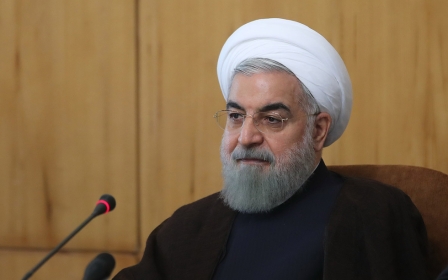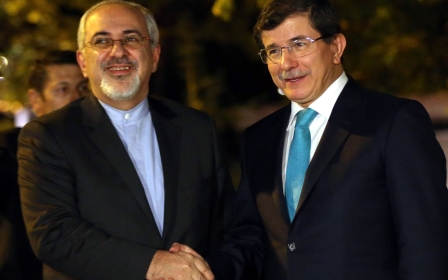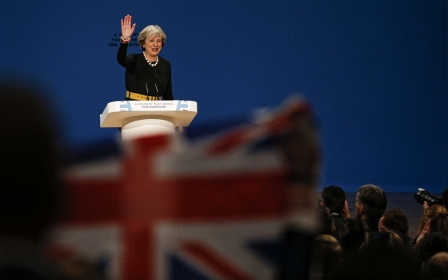Iranian leaders hail Aleppo 'victory'
As Syrian government forces and allied militias advance towards the last rebel-held areas of Aleppo amid crumbling ceasefire agreements, Iranian leaders hailed the looming end of the battle as a victory for Tehran and its allies.
Iranian forces and militias linked to Tehran have played a crucial role in supporting the troops of Syrian President Bashar al-Assad, particularly in the battle of Aleppo.
Aleppo was Syria's largest city and economic hub before the start of the war in 2011.
Several Iranian officials congratulated the Syrian government for defeating “takfiris”, a term used to describe hardline militants who consider other Muslims infidels.
Ali Larijani, Iran's parliament speaker, applauded Damascus's war efforts, saying that US and UK policies are failing across the Middle East and North Africa. The defence minister also praised the "victory" in a message to his Syrian counterpart.
Amid accusations of sectarianism because of the involvement of Tehran-backed Shia militias in the Aleppo battle, including Lebanon's Hezbollah and Iraqi and Afghani fighters, Iran's Supreme Leader Ayatollah Ali Khamenei said the crisis in the Middle East is not related to the Sunni-Shia schism.
He said “takfiris” have oppressed Sunni residents in Aleppo and Mosul, Hezbollah’s Al-Manar TV reported.
Iranian President Hassan Rouhani also called Assad on Wednesday, according to Al-Manar, referring to the end of the Aleppo battle as "an important step on the way of combating terrorism".
"Aleppo was liberated thanks to a coalition between Iran, Syria, Russia and Lebanon’s Hezbollah," Seyed Yahya Rahim-Safavi, an aide of Khamenei, was quoted as saying by The Guardian. "Iran is on one side of this coalition, which is approaching victory, and this has shown our strength. The new American president should take heed of the powers of Iran."
However, the former director of West Asian affairs at the Iranian foreign ministry took a more cautious approach. Mir Mousavi warned of a "rather bleak" future for Iran and rest of the region after the fall of Aleppo.
“The success of the military operations in Aleppo will only be a couple of nights of happiness. We will then be worrying for the next 30 years,” Mousavi said in an interview with the Iranian Al-Sharq newspaper on Tuesday.
Mousavi stressed that "killing 300,000 people and displacing 12 million others [in Syria] could only beget hatred and violence".
"Ten million families will live through hatred, and this is a problem that may take two decades to resolve," he said. "The Syrian and Iraqi conflicts have not ended. They have [merely] taken a new turn."
More than 310,000 people have been killed since the Syrian conflict began, and half the population displaced.
The former Iranian diplomat went on to compare the situation in Syria with what happened in Afghanistan.
“When the US displaced the Taliban in Kabul amid Iranian silence or even support, some of us expressed happiness thinking that our problems were over,” explained Mousavi, who had also served as the Iranian ambassador to India and Pakistan. “But I was sure that problems had only just started that moment,” he added.
During the interview, Mousavi explained that Iran’s interests required stability throughout the region.
“In order for security to be maintained within our own borders [inside Iran], security and peace must prevail in Syria, Iraq, Saudi Arabia and Afghanistan,” he said. “If these countries do not enjoy security and stability, our nation will be threatened and our progress and prosperity will become rather difficult.”
New MEE newsletter: Jerusalem Dispatch
Sign up to get the latest insights and analysis on Israel-Palestine, alongside Turkey Unpacked and other MEE newsletters
Middle East Eye delivers independent and unrivalled coverage and analysis of the Middle East, North Africa and beyond. To learn more about republishing this content and the associated fees, please fill out this form. More about MEE can be found here.




